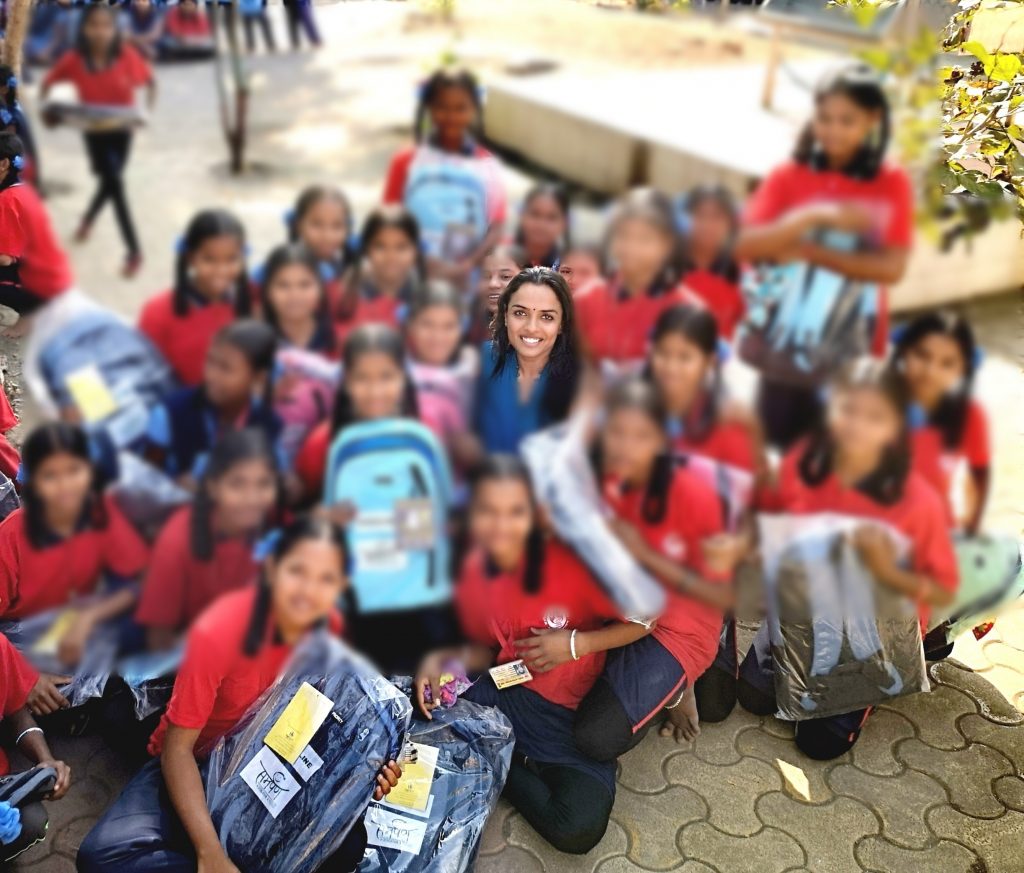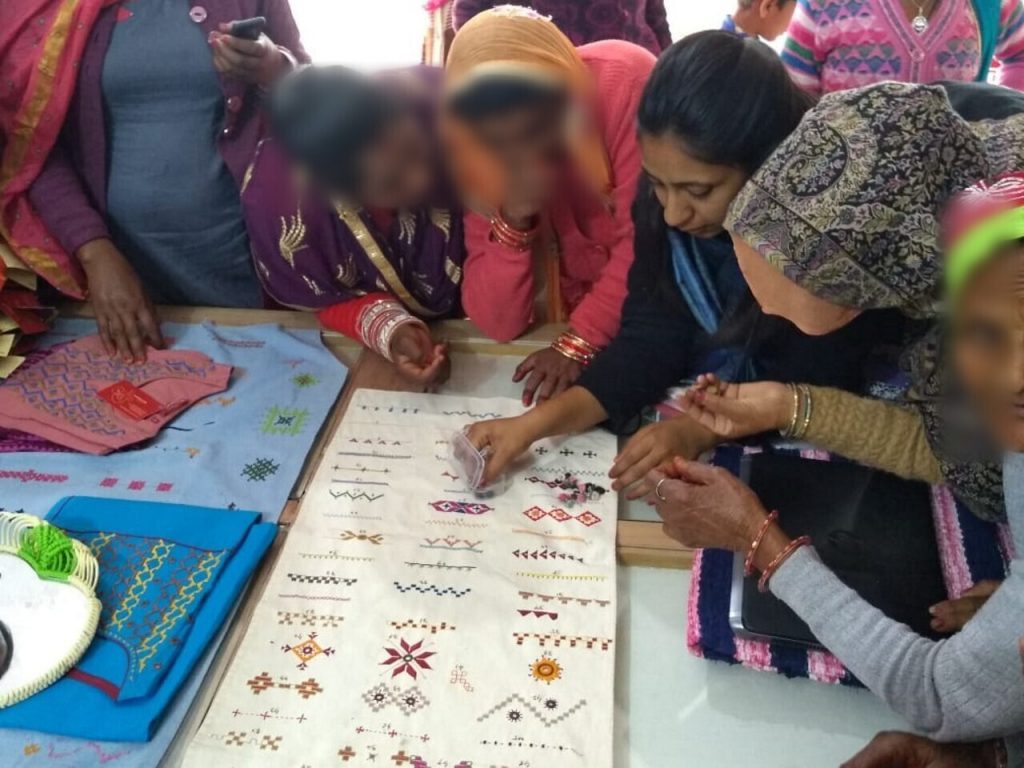The ever-lasting power of Redefining Success: Stories from 2021 Acumen India Spring Cohort

Unheard Stories of Moral Practices is a five-part series showcasing the hard-edged skills practiced by the 2021 Acumen India Fellows from the Spring Cohort. The series will explore the challenges and values of these social innovators through 5 blogs featuring our Spring Cohort over the course of a month.
The path to pushing for or achieving profound social change is an enlightened one. It requires one to question parts of themselves, their ideology, actions, intent, and its relevance to a larger purpose. For those working to drive change, being successful is a constant dilemma.
Carrying the collective responsibility to adapt and evolve in ways that are sustainable and driven by values of equity and accountability, the Acumen India Fellows are disrupting chains of hierarchy and channels of power to put the community at the center of their work. They are replacing outdated systems with solutions grounded in shared values of empathy, accountability, innovation, and leadership.
This blog explores the stories of Megha Bhargava, Raghunandan Hegde, Prerna Agarwal, and Hemant Kumar — 4 of our 20 Acumen India Fellows from the Spring Cohort redefining what it means to be successful.
AN IRS OFFICER AND A COLLEGE DROPOUT
Over the years, we have defined our society using wealth, power and influence as markers of success. We have manufactured a generation in conditions that inherently favour the powerful and prioritise accumulating goods over giving back.

Being a doctor and then an Indian Revenue System (IRS) officer made Megha the poster child for conventional success- money, social status, power- in the eyes of many, but soon she realized that there was more to life than looking at the balance sheets of big corporate houses. Her experience in the medical field and as a civil service officer allowed her to peek into the lives at the grassroots but sensed something missing in terms of the direct impact she was able to make in the lives of people. She found her calling in Samarpann.
Someone else who felt betrayed by the system and the orthodox definitions of success is Raghunandan, aka Raghu. Raghu was destined to be an engineer in his early twenties, a profession many Indian parents still believe to be their children’s sure-shot at a comfortable life.

Despite this destiny, Raghu encountered challenges along the way. His first unwanted milestone was failing the course. The second was dropping out of the course completely.
The education system was supposed to give students like Raghu a fair chance at a fulfilling life, but instead, he was labelled a failure.
His “adult life had barely begun before it felt like it had sputtered and ended,” says Raghu.
Success rarely exists in a contextless vacuum devoid of failure, our lived reality, and shared experiences because if it does, it serves little to no purpose to the betterment of our present condition. Megha and Raghu grew up believing in a definition of success that was predefined for them. When it failed to encompass their experiences, these Fellows dared to reinvent its meaning to carve their own authentic pathways to achieve progress.
Megha co-founded Samarpann — a not-for-profit that bridges the gap between quality healthcare and education for children in remote villages of India. Megha’s version of success comes from serving the people most in need.

She redefined success to be the “peace of mind attained through self-satisfaction in knowing you made an effort to do the best you’re capable of.”
Samarpann believes that a quality learning environment is critical to increasing student attendance, engagement and overall literacy outcomes. The organisation is changing the learning experience for children through its programs in Rajasthan, Uttarakhand and Maharashtra.

Raghu, on the other hand, has defied one of the grandest rules of success — academic excellence. Raghu now holds the position of Director at Apnalaya and is dedicated to breaking the barriers of academia for people labelled as outcasts and failures by the education system and our society.
Success can be a personal or a public journey of finding a greater purpose, of showing up in ways that matter, and leading the way to a reimagined, redefined success that caters to the needs of people and the planet.
AN EMPLOYEE TURNED CEO AND AN MBA ASPIRANT
The gateway to popular success is a narrow and predictable set of choices, which, when challenged, reveals the hollowness of its value system and conscience. Success isn’t something we can run to in a straight line or even something you run towards, but something you nurture within yourself, share with your people and find comfort in the peace it instills.
Reassessing and re-evaluating her every choice, Prerna, CEO of Urmul Desert Crafts, rewrote the meaning of success when circumstances demanded. Prerna started her journey with Urmul as a Project Coordinator five years ago. Since then, her role has evolved into a multifaceted position expanding across several departments and catering to the unique needs of the organization and the community in the middle of a worldwide pandemic.

A keen observer, Prerna recalls going through a ‘honeymoon period’ in the first year at Urmul; she believed hard work was the key to success, to “achieve anything.” The years that came next deepened her perspective and forced her to adapt, unlearn old habits, and acquire new skills.
For Prerna, success became a “painful, unhinging, but an exceptionally satisfying process with increasing complexities at each stage.”
Prerna constantly challenged herself to think out of the box and make choices that imbibed meaning and purpose. She rejected the obvious choices and opportunities that came her way and followed her heart to find ways to positively impact the lives of people.

Prerna is now changing the way female leadership is perceived in a patriarchal setup in the remote desert villages of Rajasthan. She is currently working closely with the craftsmen and women in remote Rajasthan to help them sustain instead of growing because surviving is being successful for now.
Similarly, challenging preconceived ideas of success and breaking away from the monotony, Hemant Kumar was the first in his family to pause, reflect and take an unexpected turn on the road to traditional success.
Coming from a science background, Hemant was presented with the choice of pursuing an MBA, which would have opened up opportunities to learn and jumpstart a corporate career for him.
However, the call to learn and explore the self, led him to do the Gandhi fellowship instead, his “first conscious decision that completely changed him and his course of life.”
Hemant co-founded the Art of Play Foundation, a not-for-profit that uses sports as a medium of communication and expression for children. Through the fellowship, Hemant realised that as a child, playing with friends at school and home was a “very authentic and organic experience” for him. He remembered feeling a range of physical and emotional reactions in just 30 minutes of play. He wanted to ensure every child irrespective of their gender, body type, and ethnicity can experience, become aware, and accept their body and emotions while playing.
After five years of working with schools to create a safe space for children to play, Hemant found himself questioning what makes AOP successful with new rules and realities.
Art of Play is now focused to “ensure joy, belonging and well-being within the existing restrictions” for children.
At the same time, he is using the time off the ground to make physical activity a part of the compulsory school curriculum.
Due to the number of challenges and societal pressures children are dealing with every day, the Art of Play works to foster acceptance, resilience and bring joy into the lives of children through organised sports.
Every generation has the opportunity to renew the values, systems and structures that define their societies.
It is now our time to mold our own definitions of success to embody the current needs of all stakeholders, and not solely a single society or leader.
Join our Fellows and the Acumen community in questioning, exploring, and reimagining your purpose and own definition of success. Register for the Path of Moral Leadership course with Acumen Founder and CEO, Jacqueline Novogratz to learn the hard-edged skills necessary to build a better world.
Note: All the images featured in the blog are intentionally blurred to keep the identity of customers and beneficiaries discreet.
Shaziya Shaikh is a Communications Intern with Acumen Academy India. She is a writer, creative facilitator, and a young intersectional feminist.
Article orginally published on Medium.
Project FUEL and Acumen Academy India are collaborating over a series of blog posts where we will be sharing inspiring and motivating stories from the 2021 Acumen India Spring Cohort.



